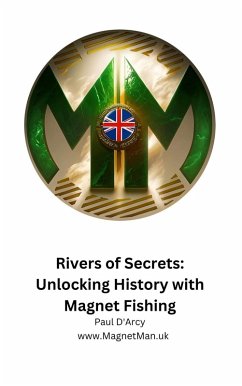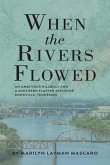Magnet fishing is a relatively niche yet intriguing hobby that involves using a strong magnet attached to a rope to recover objects from bodies of water. This pastime has gained popularity among adventure seekers, history enthusiasts, and environmentalists alike. While it might sound like a peculiar way to spend one's time, magnet fishing plays a vital role in uncovering underwater history and has contributed significantly to our understanding of the past.
The basic premise of magnet fishing is simple: participants cast a powerful neodymium magnet into rivers, lakes, canals, or other water bodies and then slowly reel it back in. The magnet's strong magnetic force allows it to latch onto metal objects hidden beneath the water's surface. As the magnet is pulled up, it may bring up all sorts of items, from old coins and jewelry to bicycles, weapons, and even historical artifacts.
Magnet fishing has gained notoriety for being an unpredictable and exciting hobby, akin to a real-life treasure hunt. However, its significance extends beyond mere excitement, as it has become a valuable tool for uncovering underwater history in several ways:
Discovery of Historical Artifacts: Magnet fishing has led to the recovery of numerous historical artifacts that were lost or discarded in bodies of water over the centuries. These can include medieval weaponry, World War-era items, and even ancient relics. Each find contributes to our understanding of the past, shedding light on the people and events that shaped history.
Archaeological Insights: Magnet fishing can act as a form of amateur archaeology, uncovering items of historical and cultural significance. These discoveries can provide valuable insights into the daily lives and practices of previous generations, helping archaeologists and historians piece together a more comprehensive picture of the past.
Environmental Cleanup: While searching for historical treasures, magnet fishermen often remove a considerable amount of debris and pollution from water bodies. This dual-purpose approach not only helps preserve historical artifacts but also benefits the environment by cleaning up waterways and reducing the impact of pollution.
Preserving and Sharing History: Many magnet fishermen document their finds and share their discoveries online or with local historical societies. This open sharing of information ensures that the historical value of the recovered items is not lost and can be appreciated by a wider audience.
Citizen Science: Magnet fishing encourages citizen science by involving enthusiasts in the process of historical discovery. As participants learn about the historical context of their finds, they become active contributors to the preservation and interpretation of history.
In conclusion, magnet fishing is not just an adventurous hobby; it plays a crucial role in uncovering underwater history and preserving our cultural heritage. It combines the excitement of treasure hunting with the responsibility of environmental stewardship and the educational value of historical research. As more people take up this unique pastime, the underwater world continues to yield hidden treasures that enrich our understanding of the past.
Dieser Download kann aus rechtlichen Gründen nur mit Rechnungsadresse in A, B, CY, CZ, D, DK, EW, E, FIN, F, GR, H, IRL, I, LT, L, LR, M, NL, PL, P, R, S, SLO, SK ausgeliefert werden.









